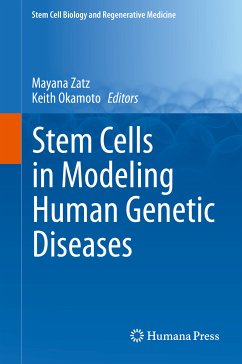Using stem cells to investigate currently untreatable human genetic diseases is the focus of this book. Several applications of the Nobel-Prize winning, revolutionary iPS cell technology are explored in detail, including in schizophrenia, autism, Huntington's disease, Alzheimer's disease, spinocerebellar ataxia, medulloblastoma heterogeneity, progeria, age-related macular degeneration, and muscular dystrophy . The book is divided into seven sections, each composed of authoritative and detailed chapters. The first section provides a theoretical and practical overview of stem cells in disease modeling. The following sections divide stem cell applications into various classes of pathology- psychiatric disorders, neurodegenerative disease, neurogenesis-associated disorders, and laminopathies. Following these sections, the book discusses the future perspectives- and challenges- of iPS technology.
Broad in scope and in audience, Stem Cells in Modeling Human Genetic Diseases for postgraduate students, scientists, and clinicians interested in applications of the rapidly developing field of stem cell research in disease modeling and drug development and its dynamic role within regenerative medicine.
Dieser Download kann aus rechtlichen Gründen nur mit Rechnungsadresse in A, B, BG, CY, CZ, D, DK, EW, E, FIN, F, GR, HR, H, IRL, I, LT, L, LR, M, NL, PL, P, R, S, SLO, SK ausgeliefert werden.









